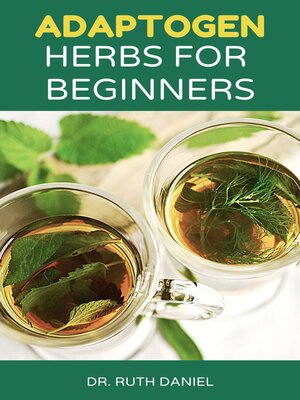ADAPTOGEN HERBS FOR BEGINNERS
ebook ∣ : What Are Adaptogens and Why Are People Taking Them?
By Dr. Ruth Daniel

Sign up to save your library
With an OverDrive account, you can save your favorite libraries for at-a-glance information about availability. Find out more about OverDrive accounts.
Find this title in Libby, the library reading app by OverDrive.



Search for a digital library with this title
Title found at these libraries:
| Loading... |
Adaptogens are a buzzword in the wellness world, popping up everywhere from juice bars to lifestyle blogs. But what are adaptogenic herbs, exactly? Here's what you need to know.
Adaptogens are non-toxic plants that are marketed as helping the body resist stressors of all kinds, whether physical, chemical or biological. These herbs and roots have been used for centuries in Chinese and Ayurvedic healing traditions, but they're having a renaissance today. Some, like holy basil, can be eaten as part of a meal, and some are consumed as supplements or brewed into teas.
Each adaptogen has a slightly different function, so the best one for you depends on the specific ailment you're experiencing, Powell says. Here are some common adaptogens and what they claim to be good for.
Adaptogens for long-term stress: Powell recommends ashwagandha and Asian ginseng to soothe long-term sources of stress and the hormone imbalances that may result from it. Some research has suggested that holy basil, or tulsi, may help lower stress levels.
Adaptogens for acute stress and anxiety: Some research suggests that Siberian ginseng (also known as eleutherococcus senticosus), rhodiola
READY TO DISCOVER MORE?
GRAB A COPY TODAY!






